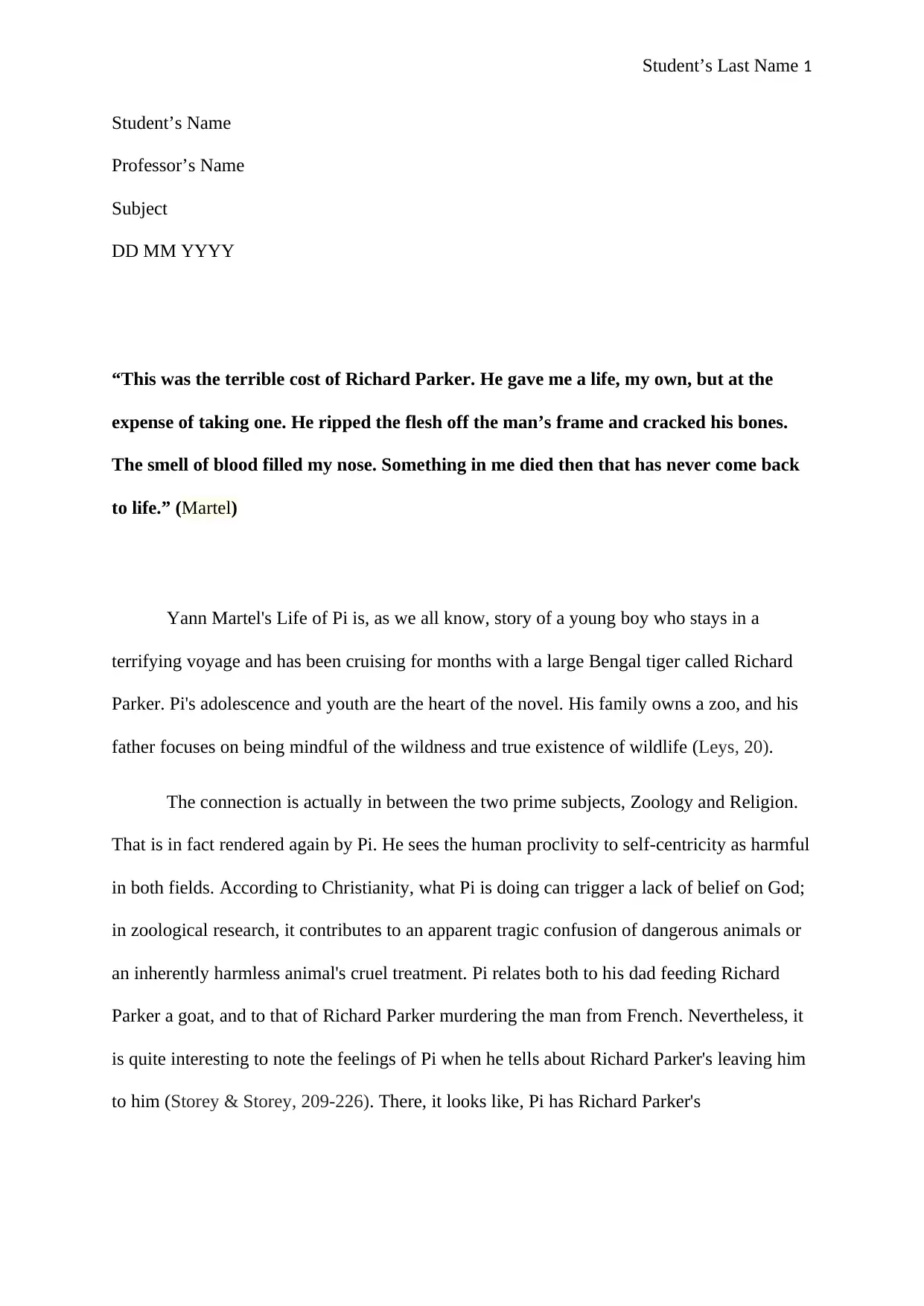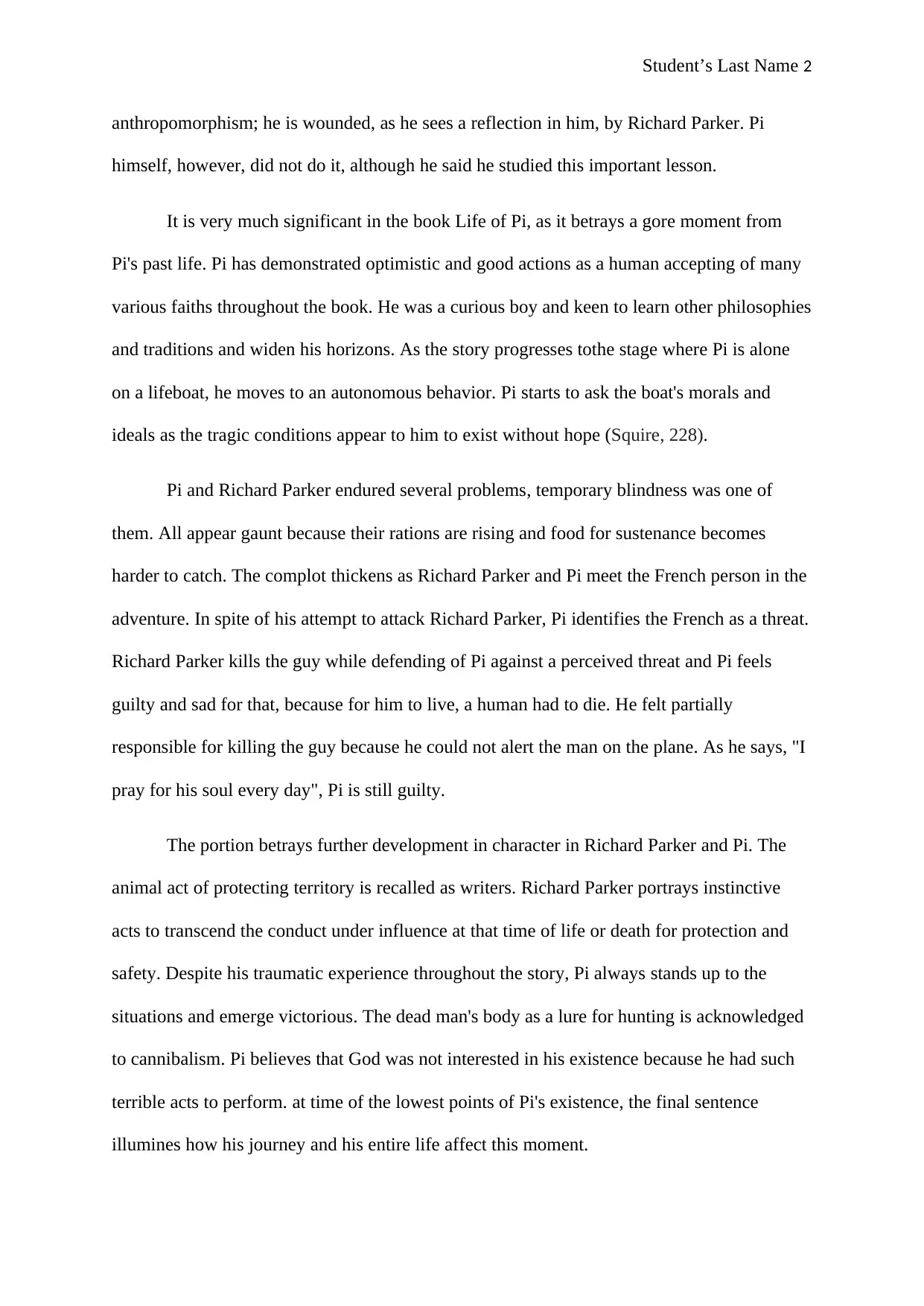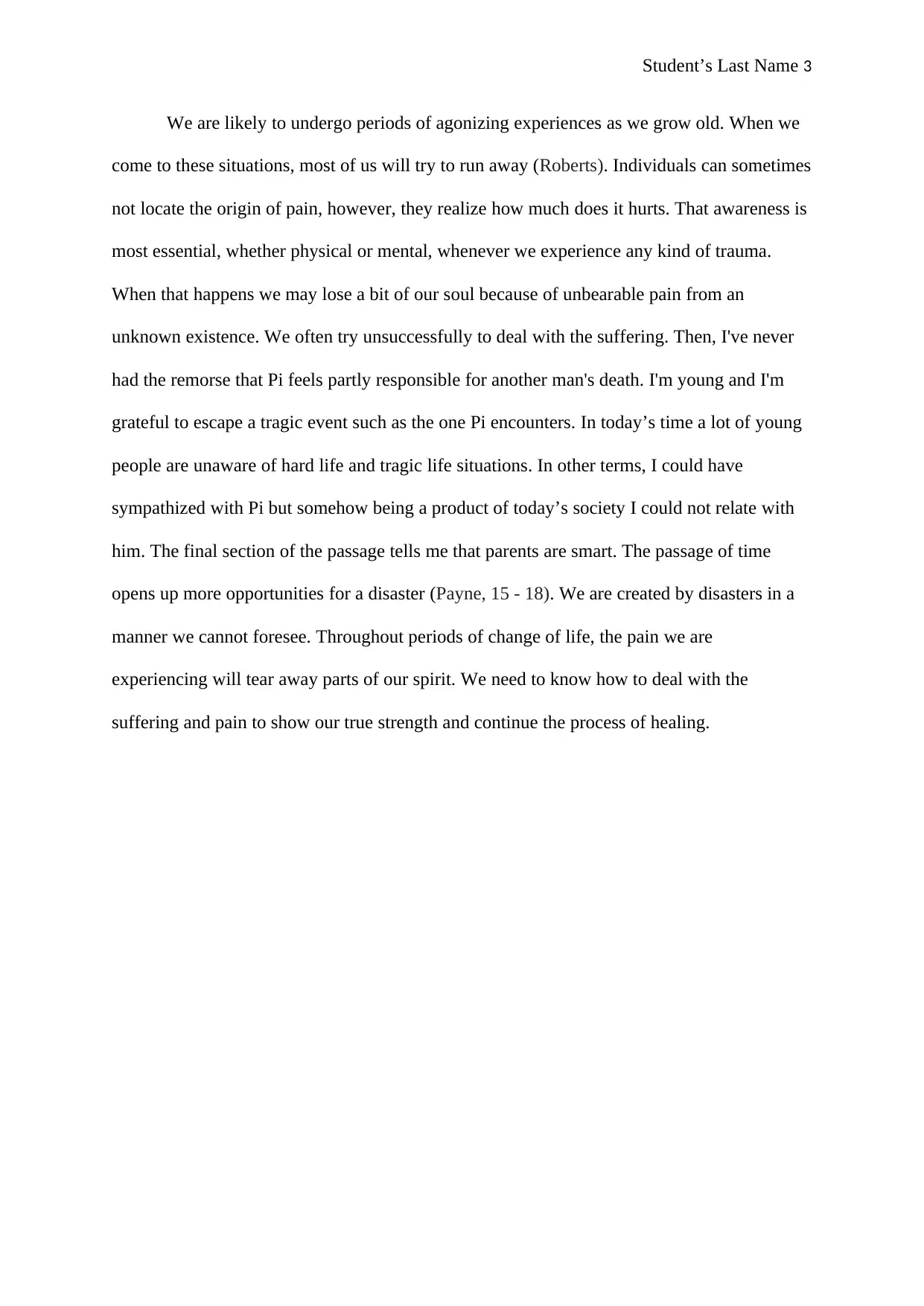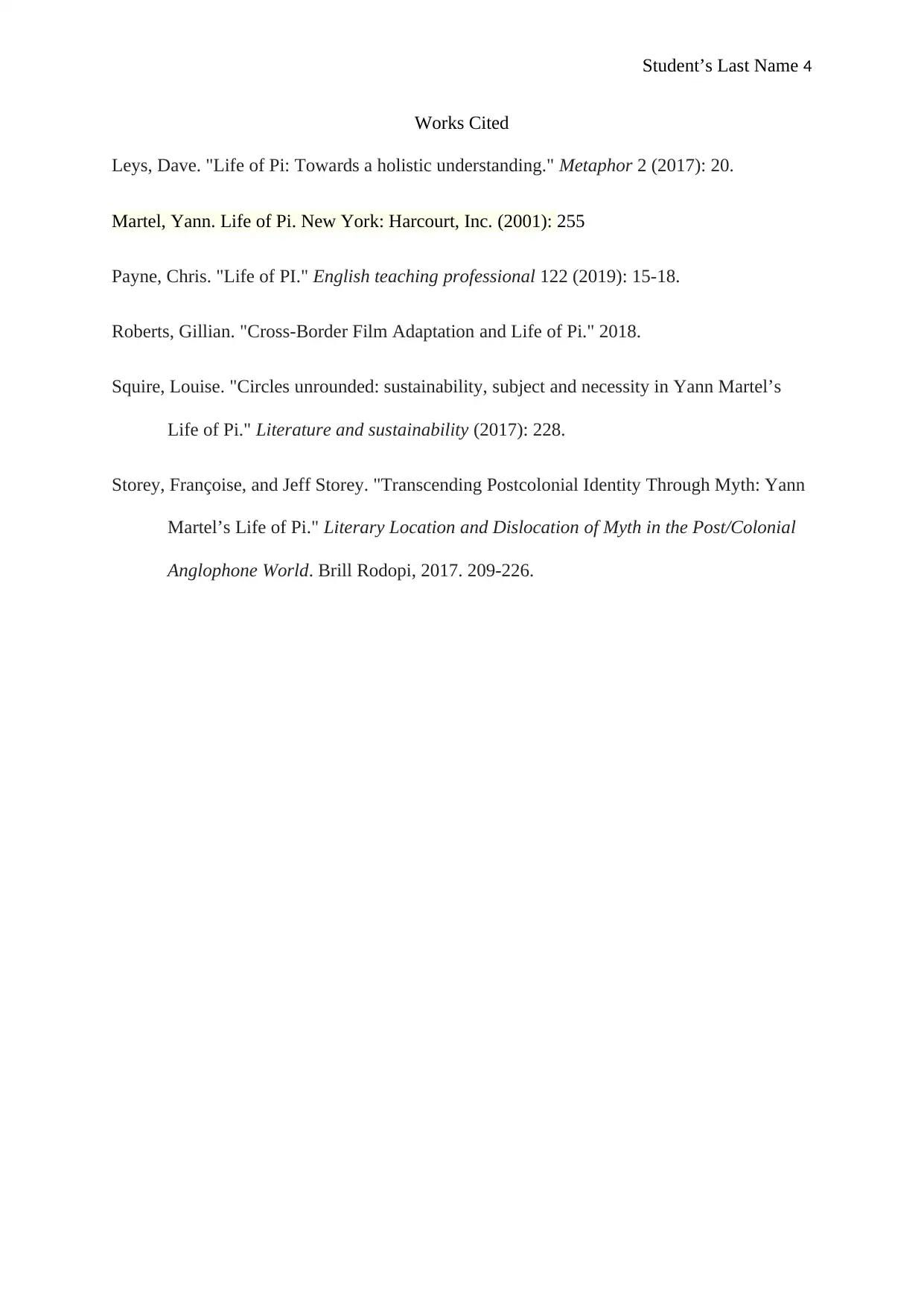Life of Pi Project: Analysis of Introductory Paragraph - ENG 1213
VerifiedAdded on 2022/08/13
|4
|1146
|12
Essay
AI Summary
This essay provides a detailed analysis of the introductory paragraph from Yann Martel's novel, "Life of Pi." The essay explores the significance of a chosen passage, examining how it crystallizes key themes and problems within the novel, and how it illuminates the character's perspective. The analysis focuses on the selected passage's role as a microcosm of the entire work. The essay delves into the themes of survival, faith, and the loss of innocence, highlighting the protagonist's journey and the profound impact of traumatic experiences. The analysis also touches upon the character's emotional state, demonstrating the complexities of the narrative and its underlying philosophical questions. The essay also examines the author's use of language, imagery, and narrative structure to convey these themes effectively. The paper also explores the protagonist's relationship with the tiger, Richard Parker, and its symbolic significance in the context of the novel's broader themes. The analysis uses textual evidence to support its claims, offering a comprehensive understanding of the chosen passage's importance within the overall narrative.
1 out of 4









![[object Object]](/_next/static/media/star-bottom.7253800d.svg)